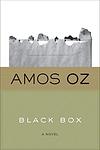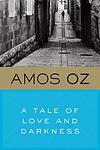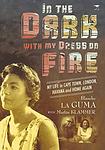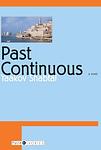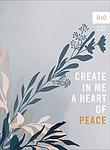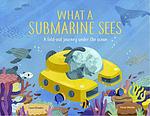The Greatest Israeli, Austrian "Fiction" Books Since 1970
Click to learn how this list is calculated.
This list represents a comprehensive and trusted collection of the greatest books. Developed through a specialized algorithm, it brings together 300 'best of' book lists to form a definitive guide to the world's most acclaimed books. For those interested in how these books are chosen, additional details can be found on the rankings page.
Genres
Countries
Date Range
Reading Statistics
Click the button below to see how many of these books you've read!
Download
If you're interested in downloading this list as a CSV file for use in a spreadsheet application, you can easily do so by clicking the button below. Please note that to ensure a manageable file size and faster download, the CSV will include details for only the first 500 books.
Download-
1. Correction by Thomas Bernhard
"Correction" is a complex narrative revolving around the life of a man named Roithamer, a genius obsessed with constructing an architectural masterpiece, the Cone, in the center of the Kobernausser forest. The story is told through the perspective of his friend who is reading Roithamer's notes after his suicide. The novel explores themes of obsession, isolation, and the pursuit of perfection, while also delving into the protagonist's troubled relationships with his family and society.
-
2. The Piano Teacher by Elfriede Jelinek
"The Piano Teacher" is a dark exploration of power dynamics, sexuality, and repression. The story revolves around a piano teacher at a prestigious music school in Vienna who lives with her overbearing mother in a state of emotional and sexual repression. Her life takes a turn when she becomes sexually involved with a young, self-assured student. The relationship, marked by sadomasochistic games and emotional manipulation, spirals out of control, leading to a tragic end. The book is a profound critique of bourgeois values and the oppressive structures of society.
-
3. Extinction by Thomas Bernhard
"Extinction" is a novel that explores the dark and complex themes of family, identity, and history through the eyes of its protagonist, a professor living in Rome. When he receives news of the deaths of his parents and brother in a car accident, he is forced to confront his past and his Austrian heritage. The narrative delves into his thoughts and feelings, his criticisms of his family and society, and his philosophical musings on life and death, all while he prepares to return to his family's estate for the funeral. The novel is renowned for its dense, stream-of-consciousness style and its unflinching examination of the human condition.
-
4. Concrete by Thomas Bernhard
The book is a darkly introspective narrative that delves into the mind of a reclusive, obsessive intellectual who is struggling to complete his scholarly work on the composer Mendelssohn. As he grapples with his own ailments and the perceived mediocrity of his surroundings, the protagonist's stream-of-consciousness monologue reveals his deep-seated anxieties, self-loathing, and profound isolation. The narrative is a relentless examination of the protagonist's psyche, showcasing his critical view of society and his own personal relationships, which are fraught with tension and dysfunction. Through this, the novel explores themes of artistic creation, intellectual elitism, and the suffocating nature of expectations and familial obligations.
-
5. Woodcutters by Thomas Bernhard
Woodcutters is a darkly humorous critique of Vienna's artistic elite. The story takes place over the course of a single evening, as the narrator attends a dinner party in honor of a recently successful actor. As the evening progresses, he reflects on the pretentiousness and hypocrisy of the guests, the mediocrity of their artistic achievements, and the tragic suicide of his former lover. The novel is a scathing indictment of the vanity and self-delusion of the artistic community.
-
6. The Left-Handed Woman by Peter Handke
"The Left-Handed Woman" is a poignant, introspective novel that explores the life of a woman who decides to live alone after her husband leaves on a business trip. She attempts to find her own identity and independence by distancing herself from her usual social circles, including her young son. The novel is a deep dive into her thoughts, feelings, and experiences as she navigates her new life, offering a profound exploration of solitude and self-discovery.
-
7. Wittgenstein's Nephew by Thomas Bernhard
"Wittgenstein's Nephew" is a semi-autobiographical novel that explores the friendship between the narrator and his friend Paul, who is the nephew of the famous philosopher Ludwig Wittgenstein. The story takes place in Vienna and is set against the backdrop of the Austrian mental health system. The novel delves into themes of sanity, insanity, and the fine line that separates the two, while also offering a critique of Austrian society. It is a meditation on the nature of illness, both physical and mental, and the impact it has on personal relationships and one's perception of the world.
-
8. A Sorrow Beyond Dreams by Peter Handke
This book is a poignant exploration of the author's mother's life and her struggle with depression, ultimately leading to her suicide. It provides a deeply personal and raw account of the author's attempts to understand his mother's despair and the societal constraints that contributed to it. The narrative is a profound reflection on memory, loss, and the complexity of human emotions, offering a stark and moving portrayal of a woman's life in a rigid, post-war society.
-
9. Black Box by Amos Oz
"Black Box" is a novel that explores the complex dynamics of a broken family. The story revolves around a divorced couple who are forced to reconnect after their son begins to display troubling behavior. The husband, a stern and disciplined judge, and the wife, a free-spirited Holocaust survivor, must navigate their personal differences, past hurts, and current relationships to address their son's issues. The book is written in the form of letters, revealing the characters' inner thoughts and struggles, making it a profound exploration of human relationships, regret, and reconciliation.
-
10. The Afternoon of a Writer by Peter Handke
"The Afternoon of a Writer" is a contemplative exploration of a day in the life of a solitary writer who, after a successful morning of writing, decides to take a walk through an unnamed European city. As he strolls, he grapples with feelings of alienation and existential dread, questioning his purpose and the worth of his work. The book delves into the writer's inner struggles, his observations of the world around him, and his reflections on the act of writing itself.
-
11. The Last World by Christoph Ransmayr
"The Last World" is a novel that reimagines the exile of the Roman poet Ovid in a remote village at the edge of the Black Sea. The story is set in a mythical time and place, where the villagers are haunted by strange transformations and echoes of Ovid's metamorphoses. The novel blurs the lines between the real and the imaginary, the past and the present, and the world of the living and the dead, creating a surreal and dreamlike atmosphere.
-
12. A Tale of Love and Darkness by Amos Oz
This book is a poignant memoir that explores the complexities of love, darkness, loss, and the endurance of the human spirit. Set against the backdrop of the end of the British Mandate for Palestine and the early years of the State of Israel, the author recounts his childhood in Jerusalem, the suicide of his mother, and his path to becoming a writer. The narrative is both a personal account and a portrait of a society in turmoil, providing a profound exploration of the individual and collective psyche.
-
13. Why Is There Salt In The Sea? by Brigitte Schwaiger
The novel explores the life of a young Austrian woman who finds herself in a stifling marriage with a fisherman in a small coastal village. As she grapples with the mundane and oppressive nature of her daily life, she yearns for freedom and self-discovery. The sea, with its salt, becomes a metaphor for her tears and the bitterness she experiences, as well as the vast possibilities that lie beyond her current existence. Her internal struggle and the choices she faces reflect the broader themes of women's liberation and the search for identity in a world that often limits female autonomy.
-
14. Lust by Elfriede Jelinek
This book is a provocative exploration of the dynamics of power and desire within the confines of a loveless marriage. Set against the backdrop of the Austrian Alps, it delves into the life of a woman trapped in a relationship with her abusive and unfaithful husband, a powerful paper mill owner. The narrative dissects the commodification of sex, the objectification of women, and the societal structures that perpetuate these themes. Through a stark and unflinching examination of the protagonist's degradation and the pervasive corruption in her world, the novel presents a scathing critique of consumerism, the patriarchy, and the hollow nature of modern relationships.
-
15. The Snows Of Yesteryear by Gregor von Rezzori
"The Snows of Yesteryear" is a memoir that explores the author's complex and tumultuous upbringing in Eastern Europe during the early 20th century. Through a series of vivid and poignant anecdotes, the book delves into the author's personal experiences with war, displacement, and the collapse of the Austro-Hungarian Empire, offering a deeply introspective and nostalgic reflection on the fleeting nature of time and the enduring impact of one's past.
-
16. Twilight And Other Stories by Shulamith Hareven
"Twilight and Other Stories" is a collection of evocative short stories that delve into the complexities of human experience, exploring themes of love, loss, identity, and the passage of time. The narratives, set against diverse backdrops, from ancient times to modern-day Israel, weave together a tapestry of characters each confronting their own moral dilemmas and emotional struggles. With a poetic and introspective style, the stories in this anthology invite readers to reflect on the subtle shades of humanity and the profound impact of seemingly ordinary moments.
-
17. The Loser by Thomas Bernhard
"The Loser" is a philosophical novel that revolves around the complex relationship between three friends who are all piano virtuosos. The narrative is driven by the protagonist's obsession with his friend's suicide, which he believes was triggered by the realization that they could never surpass the genius of their third friend. The book delves into the protagonist's psyche as he grapples with themes of talent, ambition, failure, and the destructive power of comparison.
-
18. Arabesques by Anton Shammas
"Arabesques" is a novel that intricately blends autobiography, fiction, and historical narrative to explore the complexities of identity and heritage. Set primarily in the Arab village of Fassuta in northern Israel, the story delves into the life of the narrator and his extended family, tracing their roots and experiences across generations and borders. Through a tapestry of memories, stories, and shifting perspectives, the novel examines themes of displacement, belonging, and the cultural and political tensions in the Middle East, all while challenging the boundaries between history and memory, and truth and fiction.
-
19. A Dress Of Fire by Dalia Ravikovitch
"A Dress of Fire" is a poignant collection of poetry that delves into the complexities of human emotion, exploring themes of love, loss, and the enduring human spirit. The poet employs rich imagery and a deep understanding of the human condition to weave together verses that reflect on personal and collective experiences. Through a tapestry of metaphor and allegory, the poems confront the harsh realities of life, war, and mortality, while also celebrating the delicate beauty found in everyday moments. The collection serves as a testament to the resilience of the soul and the transformative power of grief and hope.
-
20. Past Continuous by Yaakov Shabtai
The novel is a rich and intricate tapestry of life in Israel during the 1970s, following the intertwined lives of three men—Cecil, Goldman, and Israel—who are grappling with existential crises after the death of their friend, Yehuda. The narrative delves deeply into their personal histories, relationships, and the complex web of their social milieu, painting a vivid portrait of urban Israeli society. Through a stream-of-consciousness style, the book explores themes of love, loss, and the search for meaning in a world marked by political turmoil and cultural change, offering a poignant reflection on the human condition.
-
21. Badenheim 1939 by Aharon Appelfeld
The book is a haunting allegory of the Holocaust, set in a fictional Austrian resort town on the eve of World War II. As the summer progresses, the vacationers, mostly Jewish intellectuals and artists, remain oblivious to the ominous changes occurring around them, even as their freedoms are incrementally stripped away and they are eventually herded towards an unknown, but clearly grim, fate. The narrative captures the denial and complacency of the characters in the face of impending doom, serving as a chilling reminder of the dangers of ignoring the signs of societal collapse and the atrocities it can lead to.
-
22. Slow Homecoming by Peter Handke
The book in question is a lyrical exploration of themes such as identity, memory, and the sense of belonging through a series of interconnected narratives. It follows the journey of an unnamed protagonist who, after a period of self-imposed exile, embarks on a quest for self-discovery and reconnection with his homeland. Through his travels, he reflects on his past experiences, the landscapes he traverses, and the people he encounters, all of which contribute to his gradual understanding of home not just as a physical place, but as a complex tapestry of relationships, history, and inner peace. The narrative is characterized by its introspective tone and vivid, poetic descriptions of both the inner and outer worlds the protagonist navigates.
-
23. A Late Divorce by A. B. Yehoshua
The novel delves into the complexities of family dynamics and personal identity through the lens of an Israeli family facing the impending divorce of the elderly parents. As the estranged father returns from America to finalize the divorce, the reunion with his adult children and their mother in Israel brings to the surface long-simmering tensions, secrets, and unresolved emotional conflicts. Set against the backdrop of Passover, the narrative unfolds in a series of perspectives from each family member, revealing the intricate web of relationships and the individual struggles within the family unit. The story examines themes of love, betrayal, and the search for self amidst the trials of familial obligations and societal expectations.
-
24. A Perfect Peace by Amos Oz
Set against the backdrop of a kibbutz in Israel during the 1960s, the novel delves into the life of a young man struggling with the expectations of his family and community. As he grapples with his own desires and the looming specter of war, the protagonist embarks on a journey of self-discovery that leads him away from the communal life of the kibbutz. The narrative explores themes of individuality, freedom, and the complexities of human relationships, all while painting a vivid portrait of Israeli society during a time of tension and change.
-
25. See Under by David Grossman
The book is a profound exploration of the complexities of human relationships and the journey of self-discovery. Through the eyes of a young boy, the narrative delves into the intricacies of family dynamics, the pain of loss, and the quest for identity. As the protagonist embarks on a search for his missing father, he encounters a series of enigmatic clues that lead him to confront the harsh realities of adulthood and the secrets that adults keep hidden. The story is a poignant reflection on the transition from childhood innocence to the understanding of the adult world, and the ways in which our loved ones shape our perception of ourselves and our place in the world.
Reading Statistics
Click the button below to see how many of these books you've read!
Download
If you're interested in downloading this list as a CSV file for use in a spreadsheet application, you can easily do so by clicking the button below. Please note that to ensure a manageable file size and faster download, the CSV will include details for only the first 500 books.
Download







